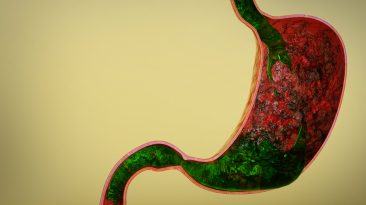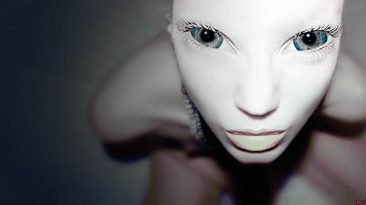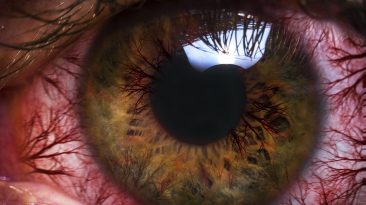Objects seemingly move by themselves, reflections are missing when you pass by mirrors. But don’t worry, this isn’t a horror story. It’s just the future. And you, like everyone else, are completely transparent.
How would society change? What would replace physical beauty standards? How would this be possible?
Squids and octopuses could be the key to unlocking huge breakthroughs in human health. The only problem? Their genes couldn’t be manipulated. Until now.
In 2020, a research group at the Marine Biological Laboratory discovered a way to delete the pigmentation gene in the species Doryteuthis pealeii, rendering them see-through. This discovery could pave the way for futuristic medicine, and yes, translucent humans. But the method used to make these squids translucent is extremely controversial when applied to humans.
The Marine Biological Laboratory used CRISPR to knock out the pigment gene in squids. CRISPR is a biotechnology that was developed from a defense enzyme in bacteria. This enzyme, called Cas9, stores genetic code from a virus so that they can fend off future attacks.
Scientists can now feed artificial ribonucleic acid (RNA) to Cas9. The enzyme searches for that genetic code, finds it, and starts chopping. CRISPR costs about $75 and only takes a few hours to complete. Widely used, this technology would have huge impacts on our world, from more resilient crops to curing human cancer.
But gene-editing is permanent for the individual being treated. And raises a lot of ethical and moral questions. And while there is growing support for using gene-editing to cure diseases, seven out of ten Americans are opposed to using the technology for human physical alterations.
Despite this, let’s jump into the future, where CRISPR is an accepted and safe biotech. Translucency has become so normal that parents could decide to edit the DNA of an embryo to be see-through. Or, this germline editing could be done as a one-time DNA modification to an entire group, which would be passed down to all future generations.
Even though everyone is completely translucent, including the internal organs, you’d still wear clothes. There could even be laws requiring people to wear clothes in public places to prevent accidents, like running into unseen others.
And while you’re see-through, the food you eat, and the bowel movements it creates, are not. So please, wear clothing. Since we won’t be able to see each other’s faces, elaborate make up and body paint could become our creative way of expressing beauty.
Physical attraction would be less about facial features and bodies, and more about the way you represent your identity through paint, tattoos, jewelry, or clothing. Of course, there would be complications to translucent humans.
Surgeons would need to use special, non-toxic, temporary dyes to color organs during operations. Security cameras would no longer catch criminals. Instead, we’d need to use thermal heat sensors to catch an invisible intruder. Maybe once someone is convicted of a crime, they would receive a swatch of permanent pigmentation, losing the attribute of complete translucency.
Some people are bound to reject becoming translucent. Small sects of opaque communities could spring up, creating tension and division between those who are see-through and those who are not. If we were all translucent, equality could come a little easier. There wouldn’t be any physical features to elicit immediate bias.
We would probably still stereotype and judge. We are still human, after all. But it might take longer to put people into preconceived boxes. And hopefully, that extra bit of time would allow us to form better opinions and see each other as humans and not tropes.
Yet many people also value diversity and wouldn’t want that to be taken away from them. The way we look says a lot about our family and ancestral history. If you were translucent, you’d lose valuable self-identity.
Sources
- “A simple guide to CRISPR, one of the biggest science stories of the decade”. Brad Plumer, Eliza Barclay, Julia Belluz, and Umair Irfan 2018. Vox.
- “What Is Human Gene Editing? | Center For Genetics And Society”. 2021. geneticsandsociety.org.
- “‘See-through’ bodies technique developed”. Smitha Mundasad. 2014. BBC News.
- “Bank Crime Statistics 2018 | Federal Bureau Of Investigation”. 2021. Federal Bureau Of Investigation.
- “Poll: Americans Support Gene-Editing Embryos To Prevent Diseases – STAT”. 2018. STAT.



























